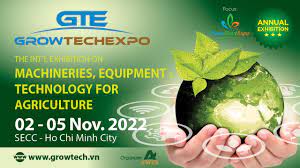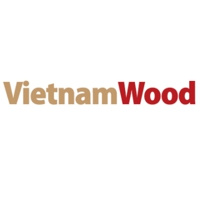- Read all
- Rice
- Fisheries
- Cassava
- Fertilizer & Pesticide
- Coffee
- Animal Feed
- Cocoa
- Seed
- Tea
- Wood
- Pepper
- Agricultural Cooperations
- Cashew
- Agricultural Investments
- Rubber
- Governmental Policies
- Sugarcane
- Agricultural Startup Ecosystem
- Corn
- Technological Innovations
- Spices
- Organic Agriculture
- Bean
- Food Manufacturing
- Fruit & Vegetable
- Agricultural Value Chain
- Flower
- Water & Waste Management
- Meat
- Processed Food
- Dairy
- Plant Originated Products
- General Agro Commodities
- Animal Originated Products
Mekong Institute transforms the lives of coffee growers
November 13, 2017
“My family has grown coffee plants since 1985 but, after we joined the MI project, we have seen significant improvements in reducing costs and earning more profits in 2016,” said Le Duc Binh, leader of the Sa Ry farmer group in Huong Phung commune, Huong Hoa district, Quang Tri province.
Le’s group, comprising 51 families (28 Vietnamese and 23 hill tribal people), last year sold 331 tonnes of coffee beans, pocketing 125 million dong (Bt178,572), without a middle man.
“With MI’s help, we’re able to create a network with coffee growers from nearby areas to increase our bargaining power and share costs in production and transport. As we are now gathered in numbers, the network can more easily secure loans to purchase what is needed… Our overall income increased by 30 per cent,” Le said.
The group produces 8,170 kilograms per day and, after subtracting 20 per cent for low-quality beans, still fetches 55 million dong (Bt78,571).
After subtracting expenses, 53 million dong (Bt75,714) is left for sharing among members at 6,570 dong (Bt9.39) per kilogram, he said. This was better than before, when they earned only 3,700 dong per kilogram.
Farmer Ho La Ngan said: “Everything changed for the better when MI came; we gained knowledge via training, and are able to join in groups to share transport costs and bargain for higher prices. Before, I sold coffee beans at 5,500 dong (Bt7.85) per kilogram and, after MI’s help, I sold at 5,800 dong (Bt8.30) with lower costs to shoulder,” he added.
Vietnam, having 650,000 hectares as coffee plantations mostly in the Tay Nguyen Central Highlands, is the world’s No. 2 after Brazil in producing and exporting coffee.
It is the world’s No. 1 producer and exporter of Robusta coffee. In 2014, Vietnamese coffee exports were worth US$3.4 billion (Bt112 billion), but there have been issues with inconsistent production, low quality beans and the lack of farmers’ access to funding.
The project was part of the Regional and Local Economic Development – East-West Economic Corridor (RLED-EWEC) being implemented since March 2013 by MI with support from the Swiss Agency for Development and Cooperation.
To boost trade and investment of the areas along the EWEC, the MI helped small farmers and small and medium-sized enterprises to gain access to regional and international markets.
This boosted their competitiveness in the Asean Economic Community’s single market, which is characterised by free movement of goods, services and investments, as well as freer flow of capital and skills.
Since 2013, the MI helped coffee growers in Huong Phung commune negotiate in a larger group with the Vietnam Bank for Agriculture and Rural Development as well as with coffee processing factories and fertiliser factories.
Three years later, farmers gathered into 17 groups with better bargaining power with buyers and good credibility to secure investment money or loans.
Coffee processing firms that buy fresh beans to unhusk and roast for sale in Hanoi, where the products are distributed worldwide, also welcomed the project. Dinh Van Tien, executive of Minh Tien Coffee Import-Export Co, used to hire people to screen coffee beans, as some farmers deliberately mixed in green ones, sand or water for more weight.
“With MI’s helps, farmers now have better knowledge to grow and harvest good quality produce and earn better prices accordingly,” he said. The company currently bought coffee beans from five farmer groups but still needed more – especially organic coffee beans that fetch higher prices.
Nguyen Quan Chinh, vice chair person of Quang Tri People’s Committee, said: “It is pity the project only has two years left. It should continue as there are many poor farmers in need of aid.”
Le Tuan Dung, director of the Quang Tri-based Binh Dien-Quang Tri Fertiliser, said thanks to the MI, farmers groups now made the factory confident enough to allow credit. They’ve established a fund worth US$1 million to deliver fertiliser in advance to farmers who can pay for it later.
MI executive director Watcharas Leelawath said MI had an office in Dong Ha City in Quang Tri where three staff members propelled the project’s works forward. Watcharas said he was proud to see the great results and wished that the farmers and factories would continue to coordinate for mutual benefit after the MI project ends.
He said they should use the MI coffee-growing model to help other farmers.
MI is also currently in discussions to speed up cross-border logistics for farm produce between Laos’ Savannakhet province and Quang Tri, he said.
Source : Nationmultimedia
Related news
-
Coffee price today October 31: Still low at 41,000 VND/kg
Coffee prices today October 31, 2022 in the world and domestic markets continue to move sideways. Currently, the domestic coffee price is still maintaining at 40,400 - 41,000 VND/kg.October 31, 2022 -
Dak Lak dedicates thousands of hectares to durian production for export
Dak Lak Provincial People's Committee held a conference on October 26 to manage, monitor and develop the codes for planting areas and export packaging facilities in the area.October 27, 2022 -
Bac Giang lychee is qualified to export to all markets
Through the results at Eurofins Testing Center, 821 indicators of pesticide residues of Bac Giang lychee were satisfactory.November 4, 2022 -
Growing organic oranges is difficult to do but the price is twice as high
Tuyen Quang In this year's orange crop, organic orange growers in Ham Yen district (Tuyen Quang) earned hundreds of millions of dong in profit because oranges were well priced and accepted by the demanding market.November 24, 2022 -
Analysis: Factors driving world rice prices in the coming time
Movements from India and China, the Russia-Ukraine conflict, droughts in Brazil and Paraguay can all affect the global rice marketNovember 18, 2022
Events See more

Vietnamplas 2022 - Vietnam International Plastic and Rubber Industry Exhibition
23-03-2023 - 26-11-2022 09:00 - 17:00
Saigon Exhibition and Convention Center (SECC) – 799 Nguyen Van Linh Boulevard, District 7, City. Ho Chi Minh.

GROWTECH EXPO - FLORAPLANTEXPO 2021
02 - 05-11-2022 09:00 - 17:00
Saigon Exhibition and Convention Center (SECC) – 799 Nguyen Van Linh Boulevard, District 7, City. Ho Chi Minh.

VTG 2022
18 - 25-10-2022 09:00 - 17:00
Saigon Exhibition and Convention Center (SECC) – 799 Nguyen Van Linh Boulevard, District 7, City. Ho Chi Minh.

VIETSTOCK 2022 - SPECIALISED EXHIBITION OF LIVESTOCK, FEED AND MEAT PROCESSING IN VIETNAM
12 - 14-10-2022 08:00 - 17:00
799 Nguyen Van Linh, Tan Phu Ward, Dist. 7, Hochiminh City, Vietnam

VTG 2022
21 - 27-09-2022 09:00 - 17:00
Saigon Exhibition and Convention Center (SECC) – 799 Nguyen Van Linh Boulevard, District 7, City. Ho Chi Minh.
.png)
VIETFISH 2022
22 - 26-08-2022 09:00 - 17:00
Saigon Exhibition and Convention Center (SECC) – 799 Nguyen Van Linh Boulevard, District 7, City. Ho Chi Minh.
Business Opportunities See more
-
BURANI INTERFOOD is looking for Buyers in Vietnam
Type:
November 22, 2021
-
BURANI INTERFOOD is looking for Buyers in Vietnam
Type: Wholesaling Meat
November 22, 2021
-
BURANI INTERFOOD is looking for Buyers in Vietnam
Type: Wholesaling Meat
November 22, 2021
-
BURANI INTERFOOD is looking for Buyers in Vietnam
Type: Wholesaling Meat
November 19, 2021
-
BURANI INTERFOOD is looking for Buyers in Vietnam
Type:
November 19, 2021
-
Indian purchaser looking for high quality cashew nut kernel from Vietnam
Type: Exporting Cashew
Mar 14, 2016
534
Limitless database of qualified and verified agricultural partners
124
Exclusive buy & sell leads on specific agricultural commodities
24
Agricultural events in Vietnam and Asia Pacific region
Stay informed!
Enter your email address below to receive updates each time we publishes new content
